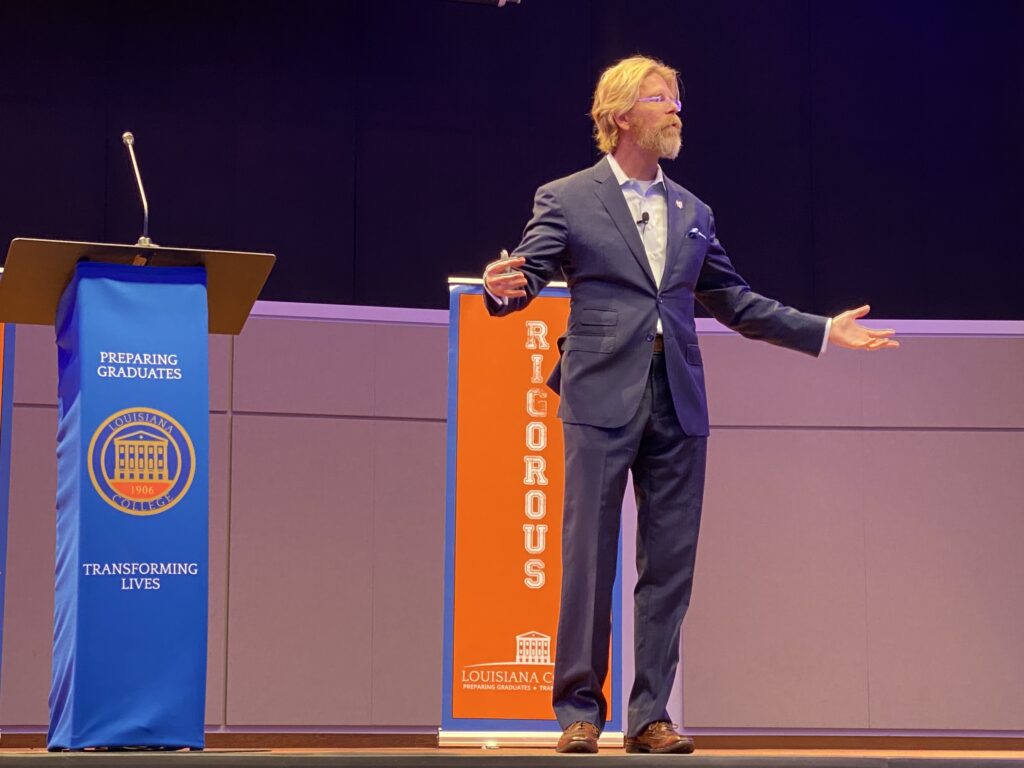Richards makes “Christian Case for Free Enterprise” in LCU lecture series

By Dr. Elizabeth B. Clarke
Pineville, La (LCU News)– Dr. Jay Richards made a compelling case for how Christianity and capitalism work together to make the world—and individual’s lives—better during Louisiana Christian University’s 5th Annual God in the Workplace Lecture Series on Monday.
Richards, an assistant research professor in The Busch School of Business and Economics at The Catholic University of America, spoke on “Money, Greed and God: The Christian Case for Free Enterprise.” He was previously scheduled to speak last year, but the event was postponed due to COVID-19.
Richards addressed a packed Guinn Auditorium on the myths and misunderstandings surrounding both socialism and capitalism and offered real-world examples to make his points.
Richards said he became interested in the topic as a freshman in college when he read “The Communist Manifesto,” but his understanding of economic realities has changed 180 degrees since then.
Like many college students, he said, he had a flawed understanding of socialism, as do many people today, because the term is never really defined by the news media or in debate.
The definition of socialism is not people freely sharing their property and their wealth, he said. It is the state seizing and controlling that wealth. And acting in one’s self-interest does not equate to selfishness. Rather, it often means others benefit as well.
“Every time you breathe, eat three meals a day, drink water, look both ways before you cross the street, you are acting in your own self-interest,” Richards said. “The Golden Rule assumes this view of self-interest.”
He quoted from Adam Smith who wrote: “It is not from the benevolences of the butcher, the brewer or the baker that we expect our dinner, but from their regard to their own self-interest.”
Richards said, however, that free enterprise is fragile.
“of all the economic systems we’ve tried, this is the best alternative, but it’s also the most unstable. Don’t think just because you have it that you necessarily have it for long.”
After his lecture, students asked questions about other countries where socialism has existed and why the theory seems perennially popular with young adults.
Richards said it’s because while the morality of socialistic ideals—of everyone sharing in the wealth—sounds good, the reality is that people are not making these choices of their free will. Rather the state is taking wealth by force.
“If you get socialism, you are going to get massive violations of human rights,” he said. “It has been tried several dozen times in the 20th century and ended in disaster and is still disastrous in places like North Korea and Venezuela.”
Richards noted that since the collapse of the Soviet Union, more than a billion people have emerged from poverty through free enterprise.
Unfortunately, Richards said, he has noticed a swing back toward a soft socialism, even in America, and the news media play a role in this by not asking tough questions of politicians who claim to espouse socialistic ideals.
“The media unfortunately have become for the most part kind of a PR arm for a certain class of politicians so they don’t see their job as asking tough questions because they could absolutely ask these politicians with 25 houses and who live in multi-million-dollar houses in Georgetown . . . ‘you know this doesn’t look like socialism. . .’ but they don’t do that unfortunately, “Richards said. “And this is part of the problem, and so you get a lot of uncritical advocacy of this without any pushback, and that is the basic reality.”
Richards is the executive editor of The Stream and a senior fellow at the Discovery Institute where he works with the Center on Wealth, Poverty and Morality.
In addition to writing many academic articles, books and popular essays on a wide variety of subjects, Richards edited the award-winning anthology God & Evolution and co-authored The Privileged Planet. His most recent book is The Human Advantage.
Richards has a Ph.D., with honors, in philosophy and theology from Princeton Theological Seminary, an M.Div., a Th.M., and a B.A. with majors in political science and religion. He lives with his family in the Washington, D.C. metropolitan area.
